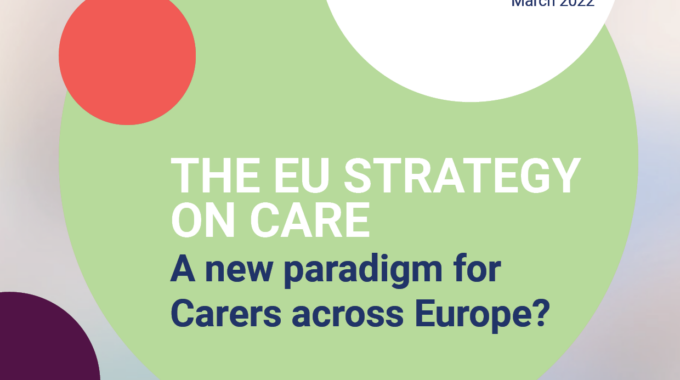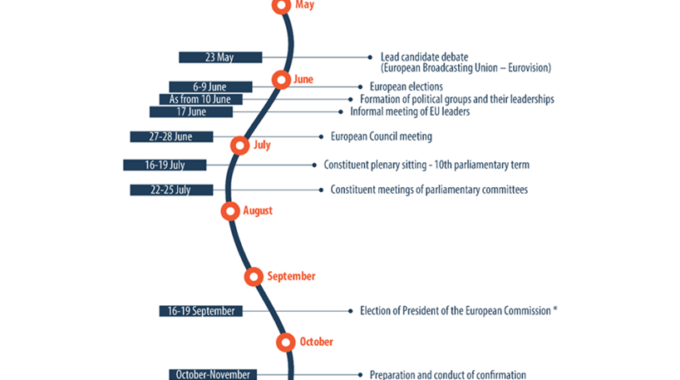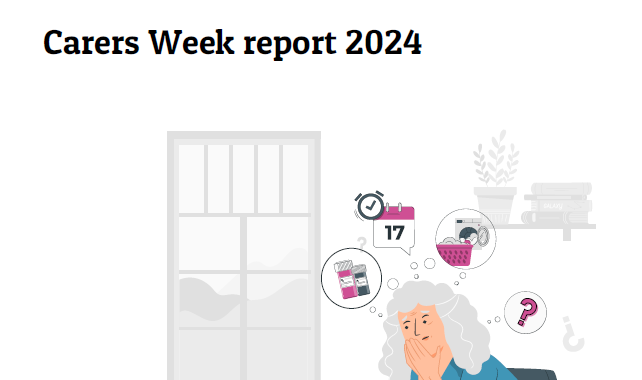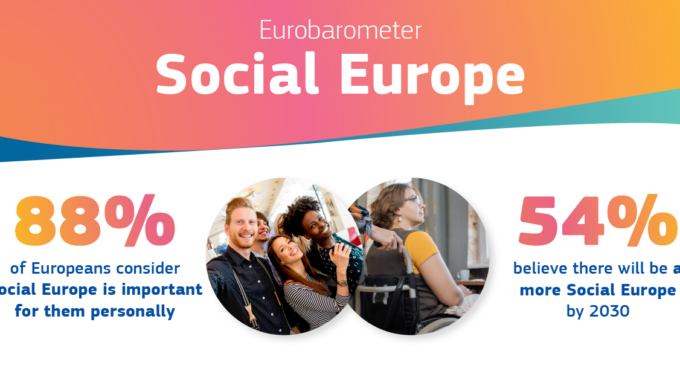
Eurocarers’ contribution to the Call for Evidence on the Care Strategy
On the 15th September 2021, EC President Ursula von der Leyen announced that the European Commission will put forward a new European Care Strategy as part of its Work Programme 2022 in order to “support men and women in finding the best care and the best life balance for them”. Ms. Von der Leyen went on to add that “caring for someone you love is the most precious time of all”, thereby raising hopes that the EU care sector may finally receive the attention and support it deserves.
We welcome the announcement of a new – and long-awaited – EU Care Strategy, and the declared ambition to address both carers and care recipients, from childcare to long-term care, and to guarantee access to good-quality and sustainable care services for all throughout the life course by setting a framework for policy reforms. Importantly for our network, it is expected that the Strategy will cover the provision of both formal and informal long-term care in Europe and be an integral part of the European Pillar of Social Rights’ implementation plan. This very timely EC initiative, therefore, has the potential to generate very positive developments for an under-resourced and yet overburdened care community.
Responding to the Call for Evidence issued by the European Commission, Eurocarers launches the position paper “The EU Strategy on Care: A new paradigm for Carers across Europe?”
Eurocarers’ vision is that care should be approached as a comprehensive and multidisciplinary sector, rooted in human rights, choice, and dignity for both care recipients and their informal carers. Against this backdrop, we believe that the EU Care Strategy should not only serve to coordinate member states’ efforts to meet the growing care needs of an ageing population, it should also be used to revisit the distribution of caregiving responsibilities between care professionals and informal carers, between the family and the State as well as between women and men.
Eurocarers’ submission details the acute challenges that need to be addressed, and what we expect from this new initiative, considering both formal and informal long-term care provision. A series of practical and positive examples illustrate our contribution.
In practical terms, we expect the EU Care Strategy to:
- Introduce EU-wide indicators as well as ambitious targets regarding access to long-term care
- Define a quality framework for care services rooted in human rights and focused on people’s wishes, dignity, and quality of life
- Enhance the development and implementation of integrated community-based and home care services.
When it comes to informal carers, it is key important for the Strategy to encourage EU member states to define a legal status for all informal carers, and give them access to a set of rights (e.g. access to social protection, financial support, pension, respite care, information, and training).
Read Eurocarers’ submission here.
Note that Eurocarers also contributed to the submission of the informal Stakeholder Group on migrant domestic and care work and the contribution of the European Platform of civil society organisations working in the social sector. We are actively coordinating our monitoring and advocacy work on the preparation of the Care Strategy with relevant European civil society organisations





